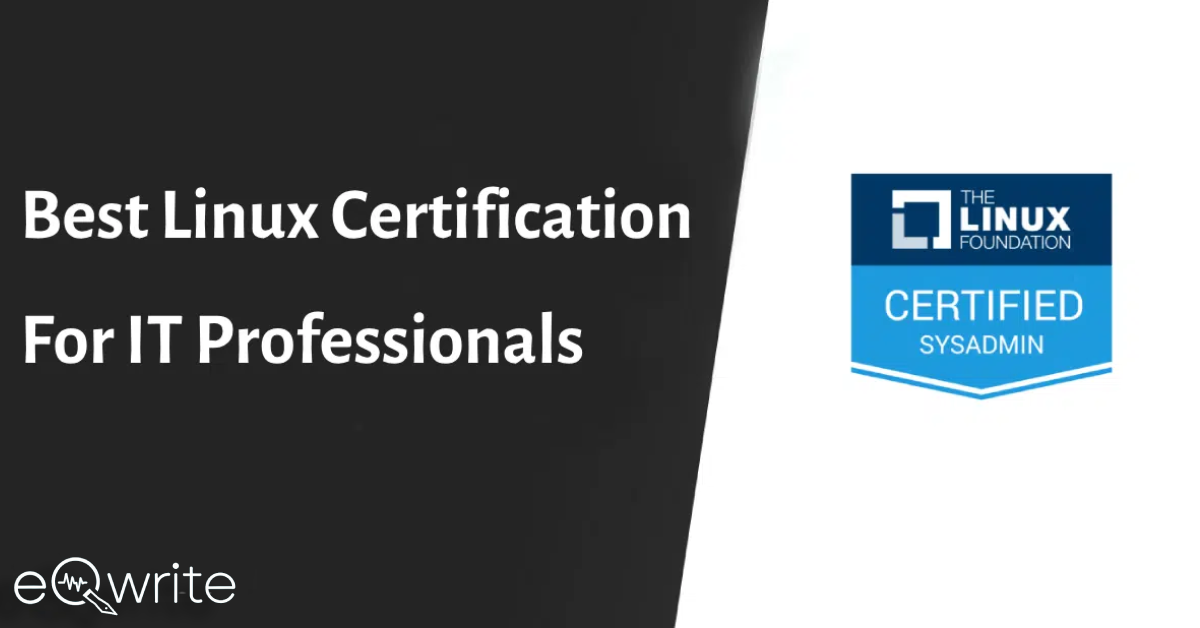Linux Certification has helped me immensely in my career as a DevOps Engineer. These certifications are significant as they are the foundation for 90% of cloud infrastructure.
Linux powers approximately 96% of the top 1 million servers. I would insist you get the Linux certification if you aspire to be a systems administrator or a network administrator.
Get started with the Kubernetes program certification using the Linux Foundation coupon code to get an extra 20% discount on the Linux Foundation.
I have spent time managing Windows servers and have worked in various technology sectors. That is how I came across Linux enthusiasts proudly displaying their affinity for this UNIX-like OS.
Holding a Linux certification showcases your competence to potential employers and fills in confidence in your Linux skills. As the Bureau of Labor Statistics states, the average salary of a system administrator is around $100,000.
Find the list of best Linux certifications here.
How do you choose the Best Linux Certification in 2024?
To choose the best Linux Certification, you can take into account the following factors that I have selected:
1. Qualifications & Skills
Depends on you. Ask yourself if you need a formal degree or specific professional qualifications to get the certification. It is crucial to check whether you fulfill the eligibility criteria, like certain technical and scientific skills, to get the certificate.
2. Cost
You must check if the certification aligns with your current career goals. Select the certification that will help you grow in your professional life.
3. Renewal Period
Some Linux certifications need to be renewed periodically. If you have chosen a certification that needs renewal, you must be comfortable with re-sitting the exam or fulfilling other requirements to extend your certification status.
4. Reviews
Always look for feedback and reviews from individuals who have previously earned the certification. Check if the certified candidates have improved in their careers or have secured job opportunities.
The 10 Best Linux Certifications in 2024
I have selected the best Linux Certifications for you to choose from. This section will also give you an idea of the Best Linux certification for beginners and definitely will help you going forward.
- Oracle Certified Professional Oracle Linux 8 System Administrator
- CompTIA Linux+
- LPIC 1 – Linux Administrator
- LPIC 2 – Linux Engineer
- LPIC 3 – 300 – Linux Enterprise Professional Certification
- LFCS (Linux Foundation Certified System Administrator)
- LFCE (Linux Foundation Certified Engineer)
- RHCSA (Red Hat Certified System Administrator)
- RHCE (Red Hat Certified Engineer)
- RHCA (Red Hat Certified Architect)
1. Oracle Certified Professional Oracle Linux 8 System Administrator
The Oracle Certified Professional Oracle Linux 8 System Administrator certification is valuable for those aiming to excel in Oracle Linux 8 server administration.
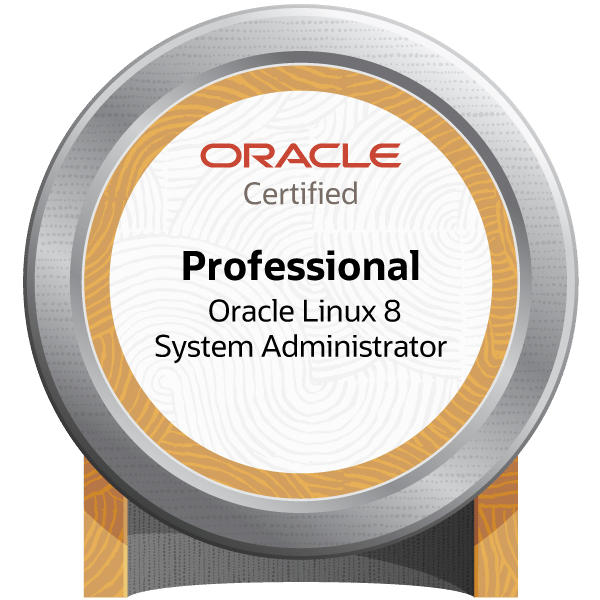
This certification assesses your expertise in deploying, configuring, and managing Oracle Linux 8 production server environments.
You can get this certification to establish a strong foundation for mastering Oracle Linux. Also, it helped me gain essential skills in system installation, configuration, and real-time monitoring. I also learned how to harness the latest features and updates within Oracle Linux, ensuring you stay ahead in this dynamic field.
Elevate your career by becoming an Oracle Certified Professional in Oracle Linux 8 System Administration, and demonstrate your proficiency in handling complex server environments while staying up-to-date with the latest innovations in Oracle Linux technology.
| Course Info | Course Syllabus |
| • Number of questions: 60 • Exam time: 90 minutes • Passing score: 60% • Languages: English • Cost: $245 | • Deploying, configuring, and administering Oracle Linux 8 production server environment • Installing, configuring, and monitoring a running system • Familiarity with Oracle Linux |
2. CompTIA Linux+
The CompTIA Linux+ certification is here to address the latest foundational skills required for Linux professionals. The Linux certification is job-focused and has proven itself as one of the best when preparing for Linux interviews.
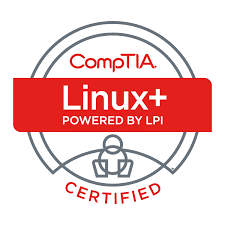
This certification provides comprehensive knowledge of Linux distributions, Linux Command line operations, system maintenance, installation, configuration, and networking.
The practical hands-on experience of the program has helped me to proficiently configure, support, and monitor Linux Operating System servers.
You can enhance your interview performance with the CompTIA Linux+ certification that helps to equip you with the essential skills needed in today’s Linux-focused job market.
| Course Info | Course Syllabus |
| • Number of questions: 90 • Exam time: 90 minutes • Passing score: 720/900 • Languages: English, Japanese, Portuguese, and Spanish • Cost: $348 | • Security, storage, and visualization, • Kernel modules • Enterprise-level device management • Git and automation • Server-side and command-line usage • Networking • Firewalls • Troubleshooting • SELinux |
3. LPIC 1 – Linux Administrator
The LPIC 1 – Linux Administrator certification is a program that has helped me gain several skills like command-line maintenance, Linux system installation and configuration, and fundamental networking.
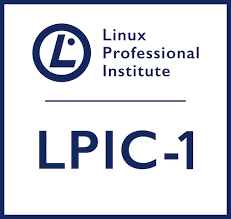
It serves as a validation of a candidate’s capability to manage real-world system administration tasks effectively.
What sets this certification apart is its accessibility as it doesn’t require you to fulfill any eligibility criteria. The validity of LPIC 1 -Linux Administration is 5 years, which gives you enough time to use it before expiration. You can always renew it by resitting in the exam.
To earn the certification, candidates must successfully pass both the 101 and 102 exams, making it an ideal choice for beginners seeking to establish their Linux expertise.
| Course Info | Course Syllabus |
| • Number of questions: Two exams, 60 questions each • Exam time: 90 minutes for each exam • Passing score: 500/800 • Languages: English, Japanese, Portuguese (Brazilian), Spanish • Cost: $120 | • System Architecture • Linux Installation • Package Management • GNU and Unix Commands • Linux Filesystems, Filesystem Hierarchy Standard and Devices • Shell & Shell Scripting • Desktops and Interfaces. • Administration • System Services |
4. LPIC 2 – Linux Engineer
The LPIC 2 – Linux Engineer certification is a second-tier LPI’s esteemed professional certification program. It helps the candidates manage and administer networks from small to medium-sized enterprises.
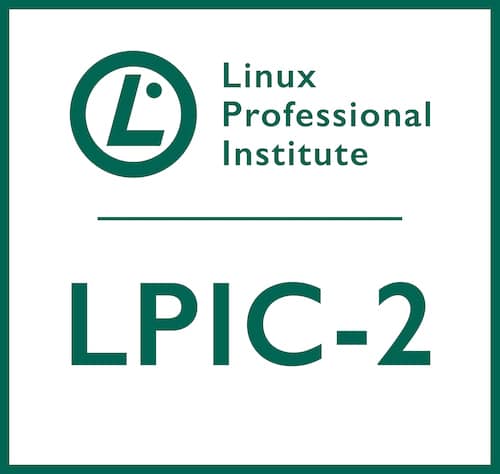
To qualify for this certification, you need to have an active LPIC-1 Certification. Good thing that you have the flexibility to take the LPIC-1 and LPIC-2 exams in any order as per your preference.
The LPIC 2 certification boasts a substantial 5-year validity period leveraging advanced Linux engineering skills. LPIC 2 is a stepping stone in your LPI certification journey with the knowledge and practices to excel in network administration in the IT industry.
| Course Info | Course Syllabus |
| • Number of questions: Two exams, 60 questions each • Exam time: 90 minutes for each • Exam passing score: 500/800 • Languages: English • Cost: $120 | • System StartUp • Linux Kernel • FileSystem and Devices • Capacity Planning • Advanced Storage Device Administration • Network Configuration & System Maintenance • File Sharing and Network Client Management • Domain Name Server • Web and Email • System Security |
5. LPIC 3 – 300 – Linux Enterprise Professional Certification
The LPIC 3 – 300 – Linux Enterprise Professional Certification is the best of expertise in distribution-neutral Linux. This proves that it is an enterprise-level professional certification. The candidate must have an active LPIC – 2 certification to appear for LPIC 3 – 300 certification.
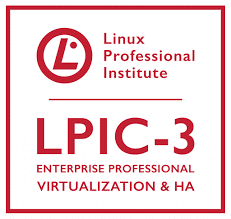
The validity of LPIC 3 – 300 certification is for 5 years, which is enough to provide you a hike in your career development as a Linus Administrator or engineer.
The LPIC 3 level has two additional specialization certifications. The candidate can earn the certification for that specific area of expertise if they pass any two certifications. These specialization certifications share the same prerequisites and validity periods as the LPIC 3 – 300.
| Course Info | Course Syllabus |
| • Number of questions: 60 • Exam time: 90 minutes • Passing score: 500/800 • Languages: English, Japanese • Cost: $120 | • OpenLDAP Configuration and Authentication Backend • Samba – Basics, Share Basics, User & Group Management • Samba – Name Services and Domain Integration • Working with Windows and Linux Clients. |
6. LFCS (Linux Foundation Certified System Administrator)
The LFCS (Linux Foundation Certified System Administrator) certification is a perfect starting point for newcomers to Linux System Administration. It stands out for its assessment methodology, which involves on-the-job tasks and real-world scenarios.
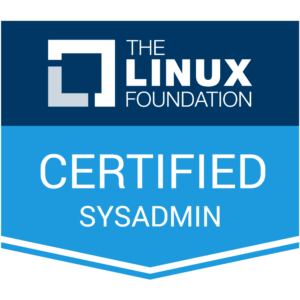
This approach provides candidates with valuable hands-on experience that holds immense weight with potential employers.
The LFCS certification is conveniently conducted online, and it is also equipped with other flexibilities for candidates. It remains valid for a period of 3 years.
| Course Info | Course Syllabus |
| • Number of questions: Performance-based exam • Exam time: 2 hours • Passing score: 66% • Languages: English, Spanish, Portuguese, Japanese, and German • Cost: $375 (exam only) or $575 (course and exam) | • Essential Commands, File Systems, and Features. • User and Group Management and System-wide environments • Operation of Running Systems, Boot, Reboot, Install, Configure, and Troubleshoot. • Service Configuration, DNS, SSH, HTTP, and Virtual Machine Maintenance. • Networking, IP Routing, and synchronization • Storage Management, LVM Storage, RAID Devices, and Configured File Systems. |
7. LFCE (Linux Foundation Certified Engineer)
The LFCE (Linux Foundation Certified Engineer) certification caters to individuals possessing 3-5 years of valuable Linux experience.
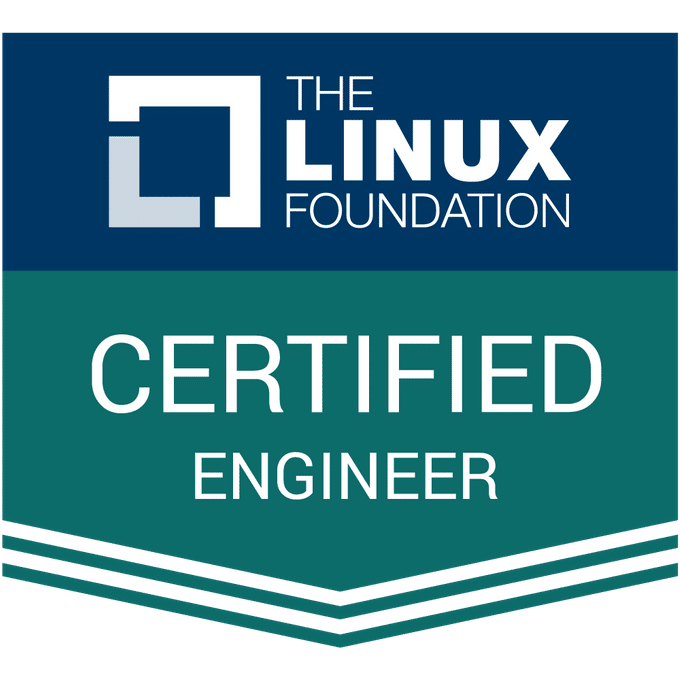
It is an excellent choice for those seeking to advance their careers as DevOps engineers. This certification delves into advanced concepts in the Linux domain.
The LFCE certification is a performance-based certification based on real-world, on-the-job scenarios. There are no prerequisites to appear for this certification. It offers accessibility to a wide range of experienced Linux professionals looking to elevate their expertise.
It has a 3-year validity period.
| Course Info | Course Syllabus |
| • Number of questions: Performance-based • Exam time: 2 hours • Passing score: 57% • Languages: English, Spanish, Portuguese, Japanese, and German • Cost: $375 | • Essential Commands, File Systems, and Features. • User and Group Management and System-wide environments • Operation of Running Systems, Boot, Reboot, Install, Configure, and Troubleshoot. • Service Configuration, DNS, SSH, HTTP, and Virtual Machine Maintenance. • Networking, IP Routing, and synchronization • Storage Management, LVM Storage, RAID Devices, and Configured File Systems. |
8. RHCSA (Red Hat Certified System Administrator)
The RHCSA (Red Hat Certified System Administrator) certification empowers you with the skills to efficiently handle core system administration tasks within Red Hat Linux environments.
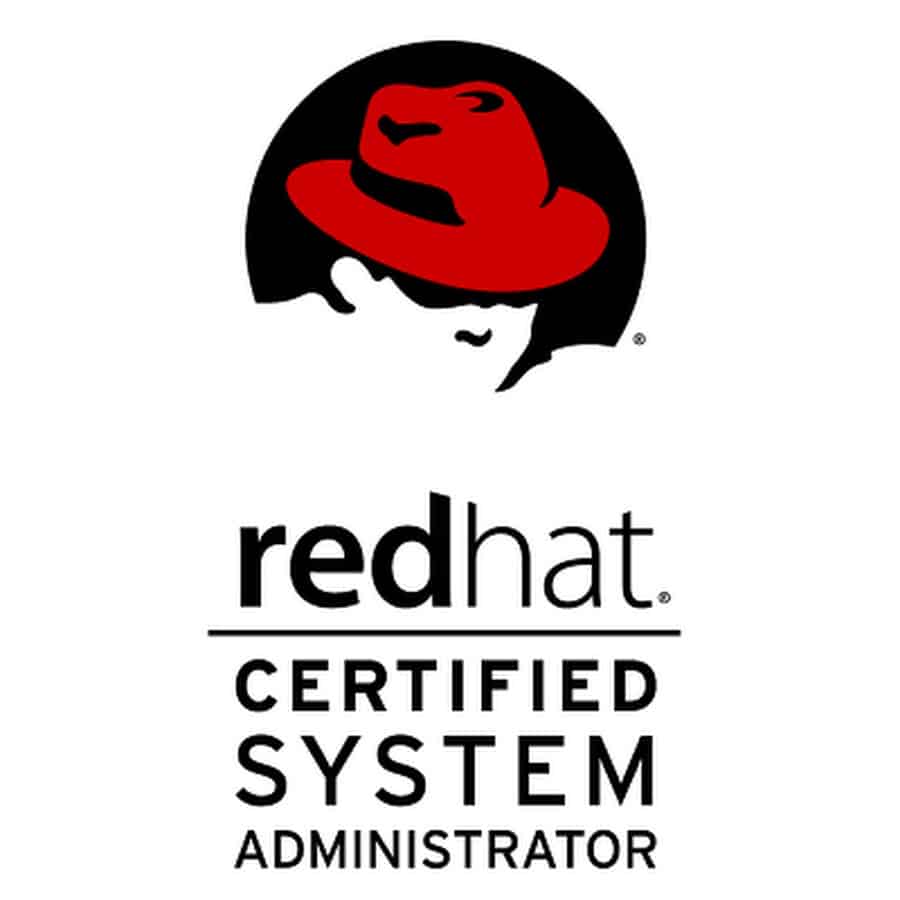
This fundamental exam lays a strong foundation that can be built upon for pursuing other esteemed Red Hat certifications.
This certification validates your proficiency in managing and maintaining Red Hat Linux systems, making it an essential credential for those aspiring to excel in Linux administration roles.
RHCSA signifies your ability to perform key administrative tasks and sets the stage for advancing your expertise in the world of Red Hat certifications.
| Course Info | Course Syllabus |
| • Number of questions: Performance-based • Exam time: 3 hours • Passing score: 210/300 • Languages: English • Cost: $450 | • Handle files and directories, command-line environments, and documentation. • Operate running systems, identify processes, run Virtual • Machines and Control Services • Storage Configuration • File System Configuration • Manage Core Services • Manage Users and Groups. • Manage Security and SELinux Configuration |
9. RHCE (Red Hat Certified Engineer)
The RHCE (Red Hat Certified Engineer) certification is the next level certification in the Red Hat path. It serves as a prestigious recognition of your advanced Linux expertise.
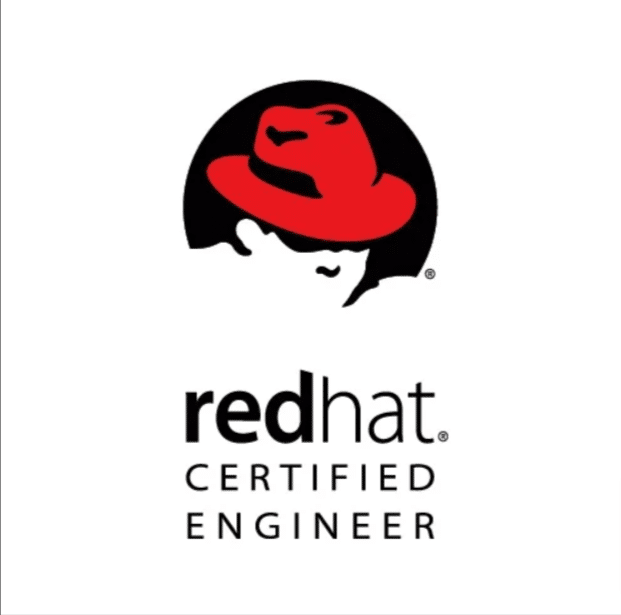
The prerequisite to pursue this certification is to obtain the RHCSA (Red Hat Certified System Administrator) certification.
An RHCE can automate essential Red Hat Enterprise Linux tasks, integrating and automating emerging Red Hat technologies effectively.
The latest iteration of the RHCE certification strongly emphasizes Linux System Administration Task Automation using Ansible and Shell Scripting.
It’s important to note that the RHCE certification requires renewal every three years.
| Course Info | Course Syllabus |
| • Number of questions: Performance-based • Exam time: 3 hours • Passing score: 210/300 • Languages: English • Cost: $450 | • Automating the deployment, management, and support of multi-system environments • Ansible Automation and shell scripting • System Administration |
10. RHCA (Red Hat Certified Architect)
The RHCA (Red Hat Certified Architect) certification is the topmost of expertise in the Red Hat certification path. It is designed to equip professionals with the adaptability to meet diverse requirements.
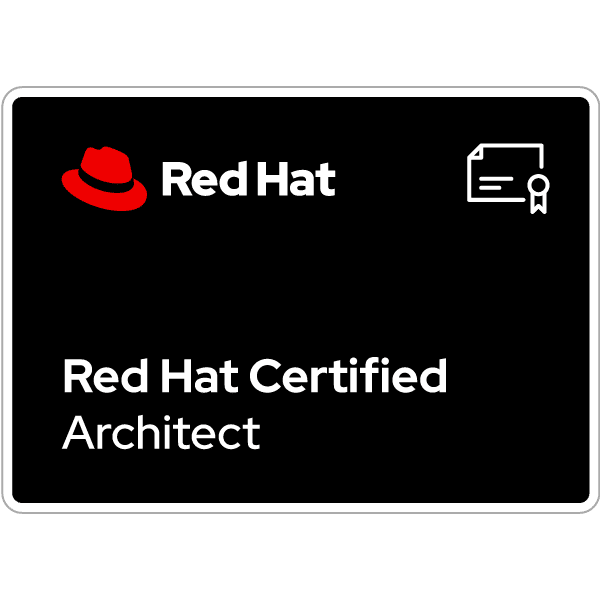
The candidates must have already achieved certifications such as RHCE (Red Hat Certified Engineer), RHCEMD (Red Hat Certified Enterprise Microservices Developer), or RHCJD (Red Hat Certified JBoss Developer), showcasing their foundational and specialized skills.
| Multiple options, depending on the track taken | Course Syllabus |
| Requires passing at least 5 other exams | Multiple options, depending on track taken |
Why Get a Linux Certification? Is Linux Professional Institute certification worth IT?
Linux certifications are highly recommended by most of the tech companies out there. It gives you the chance to stand out from the crowd on a global level.
If you are looking forward to building a career as a data administrator, system administrator, and DevOps engineer, you must take the Linux Foundation.
And definitely, its certification is worth it. Here I am giving you so many good reasons to get a Linux certification and why it is worth it:
- Recruitment Priority: Many hiring managers seek out Linux professionals because of Linux’s critical role in today’s technology landscape.
- Demand in Open Cloud Platforms: The rise of open cloud platforms has created a growing need for Linux professionals. You can prove your knowledge and skills through your Linux certification.
- Increased Linux Talent: Employers are actively seeking more Linux talent to meet the demands of their infrastructure and operations.
- Salary Advancements: Linux-certified professionals often command higher salaries and have better positions in the tech industry.
What Are the Advantages of Linux Certification?
According to a report, the global Linux OS market is set to reach $15.6 billion by 2027 from only $3.89 billion in 2019.
Moreover, there are several advantages of Linux Certification, which are as follows:
- Many multinational companies prefer to hire someone who has these Linux Certifications.
- Growing demand for Linux-proficient professionals will be more shortly.
- Linux certification programs offer access to official training materials and real-time project experience.
- You will get knowledge of Linux concepts and their real-time applications.
- Industry experts and certified trainers offer support and guidance worldwide.
- Lab sessions and hands-on practice will help you better understand the application of several concepts.
If you are preparing for Kubernetes, then you need to refer to the CKA exam study guide, which will help you prepare well for the exam.
Final Thoughts
Hopefully, the 10 Best Linux Certification list has provided you with what you need to know in your certification journey. Don’t forget to choose your eligibility criteria and the validity period of your certification.
I have renewed some of my certifications over time, which helps me keep my skills updated as per evolving IT needs. Good Luck with your certifications!
Frequently Asked Questions
Which Linux certification should I choose?
Your choice of Linux certification should be aligned with your career goal. Look into the details of the Linux mentioned above certifications and then see what works for you.
What Linux certification should I go for as a beginner?
LPIC 1 – Linux Administrator is the best course for you as a beginner. Also, LFCE (Linux Foundation Certified Engineer) has no prerequisite needed, so you can also pursue this course.
How much do I have to pay for the Linux exam?
The cost of the Linux exam varies between $200 and $500 for the most part.
Best Linux certification for DevOps?
The top Linux certifications for DevOps are LFCS, RHCSA, and RHCE. They confirm essential skills in system administration, automation, and managing enterprise Linux. These are vital for DevOps roles.

